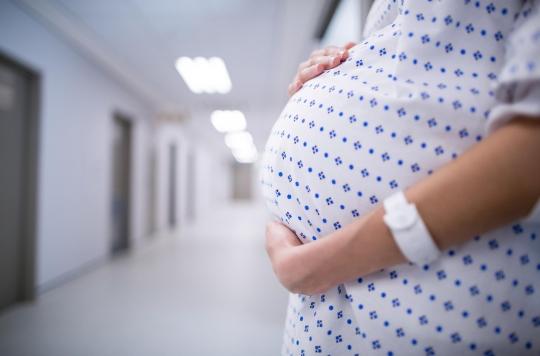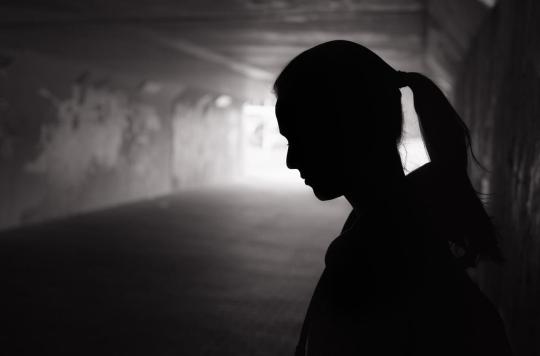Officially, surrogacy is not part of the review of the bioethics law. However, the question of its authorization in France has been on the societal agenda for several years. In practice, couples already use it abroad.

Nearly 500 children are born each year after surrogacy (surrogacy). This medically assisted procreation method is practiced by heterosexual couples when the woman cannot bear the child (absence or malformation of the uterus, state of health incompatible with pregnancy, etc.). The couple then appealed to a “surrogate mother”. Either she carries the embryo resulting from a fertilization in which she did not participate, or she provides the ovum. In both cases, she leads the pregnancy and gives birth to the child that is not hers.
For male homosexual couples, it’s the same process. If the surrogate mother provides the egg, it is called a natural surrogate mother who carries a baby from her own eggs and daddy’s sperm. She is therefore the biological mother of the child but will have no rights over the child. These practices are prohibited in France, but couples have recourse to them abroad.
“We wanted ethical surrogacy”
This is the case with Béatrice and Raphaël. This couple has tried everything to have a child: six simple stimulations, inseminations of sperm in the hospital, five in vitro fertilizations, PICSI which is a technique for selecting the best sperm … Finally, Béatrice performed medically assisted procreation with donation of oocytes for her first child. But, the complications of her childbirth forced the doctors to have her uterus removed. Eager to have a second child, the couple had only two choices: adoption or surrogacy. They opted for the second.
“We wanted an ethical surrogacy, where the rights of women are respected, insists Béatrice. For example, the contract we signed stated that if the child had a disability it was our child. It seems normal but it has happened – rarely – that parents leave a disabled child with a surrogate mother ”. A company introduced the couple to a surrogate mother, Mandy.
Before starting the process, Béatrice, Raphaël and Maxence, their first child, spent several days in the United States. They met the family of the surrogate mother. Everything went well, they gave the green light. This trip was also an opportunity to choose the egg donor, this time from a catalog. “We chose a woman with a good medical history, no family history and who was studying,” explains Béatrice.
“Thaïs is three and a half years old and is not registered in the family record book
Children are therefore legally born from surrogacy abroad but differently depending on the country that authorizes this medical practice. In the United States, the right of the soil allows children to have an American passport. In Ukraine, there is no land rights, so children have no papers, neither foreigners nor French. In the United States, newborns have a birth certificate.
Béatrice, Raphaël and Maxence were in the United States for the birth of Thaïs. “My husband and Mandy, the surrogate mother, first recognized the child,” says Beatrice. Then, I adopted him on American soil. Thaïs had a birth certificate and an American passport. ” Once back in France, the parents had no problem: their daughter quickly got an identity card and a French passport.
Administrative procedures that drag on
“Thaïs is three and a half years old and is still not registered in the family register,” adds Béatrice. The court wants proof that I carried the baby and gave birth. As they don’t have it, they refuse to register it in the family record book. ” In theory, and as the Taubira circular of 2013 recalled, children born abroad to French parents have the right to French nationality. In fact, French justice sometimes refuses to transcribe the foreign birth certificate of children born to surrogacy. These children are therefore not registered in the family record book. In fact, recognition of the filiation of children born to surrogacy abroad is impossible.
“Today Thaïs is French but in the French files she has no parents,” continues Béatrice. One of the most popular solutions is to do a genetic test which proves that my husband is the biological father ”. So the court would recognize him as a legal parent and Beatrice could then adopt her daughter. For heterosexual couples, the courts recognize the father because he donated his sperm but not the mother because she did not give birth. For homosexual couples, the man who donated his sperm is recognized as a parent.
“I am not his mother for the moment”
In January 2017, the European Court of Human Rights (ECHR) condemned France for refusing to transcribe the birth certificates of children born to surrogacy abroad. This is the fifth time that the European body has condemned this fact as an attack on the identity and rights of these children. The country cannot refuse to recognize these children, even if surrogacy is prohibited on French soil. However, the Court of Cassation seemed to have come into line with the case law of the ECHR. In 2015, the High Court authorized the registration in the civil status of two children born to GPA in Russia.
Usually, a decision taken by the Court of Cassation is then followed by all the other courts. However, only the parentage of the father is recognized. In January, two days before the opening of the General Assembly on Bioethics, 110 personalities launched a worldwide appeal for the recognition of surrogacy in France. They denounce this unjust filiation for the child and his parents. “If something happened to my husband, I could be separated from my daughter, worries Beatrice. In the eyes of the French judges, I am not his mother for the moment and no test can prove it.” Béatrice and Raphaël hired a lawyer to assert their rights and those of Thaïs with the court in charge of their case.
A medically assisted procreation method that varies between 26,000 and 240,000 euros
The National Consultative Ethics Committee (CCNE), in charge of the States General on bioethics, supports medically assisted procreation but not surrogacy. This question is not debated within the framework of the revision of the law on bioethics. Nonetheless, opponents of assisted reproduction, whose openness to single women and female couples is debated, fear that it may lead to the authorization of surrogacy. This would allow male couples, who can only become parents through adoption, to have a child. So are women with assisted reproduction. Like the CCNE, Emmanuel Macron has always said he is opposed to surrogacy.
Nevertheless, it seems that a majority of the population does not follow the President’s advice. According to an IFOP poll for La Croix and the European Bioethics Forum last January, 64% of French people would be in favor of some form of legalization of surrogacy. According to CCNE members, this medical practice raises ethical and moral questions that are difficult to resolve. For example, opponents of surrogacy lash out at the “commodification” of the female body that, according to them, the legalization of surrogacy would engender.
Depending on the countries that allow it, the cost of this medically assisted procreation method varies between 26,000 and 240,000 euros. Béatrice and Raphaël paid 120,000 euros. “It is above all the intermediary company that gets richer, Mandy received 2,500 euros per month during her pregnancy”, concludes Béatrice. The two families have remained close. This summer, Béatrice, Raphaël, Maxence and Thaïs will fly once again to the United States, heading to Mandy!
.















